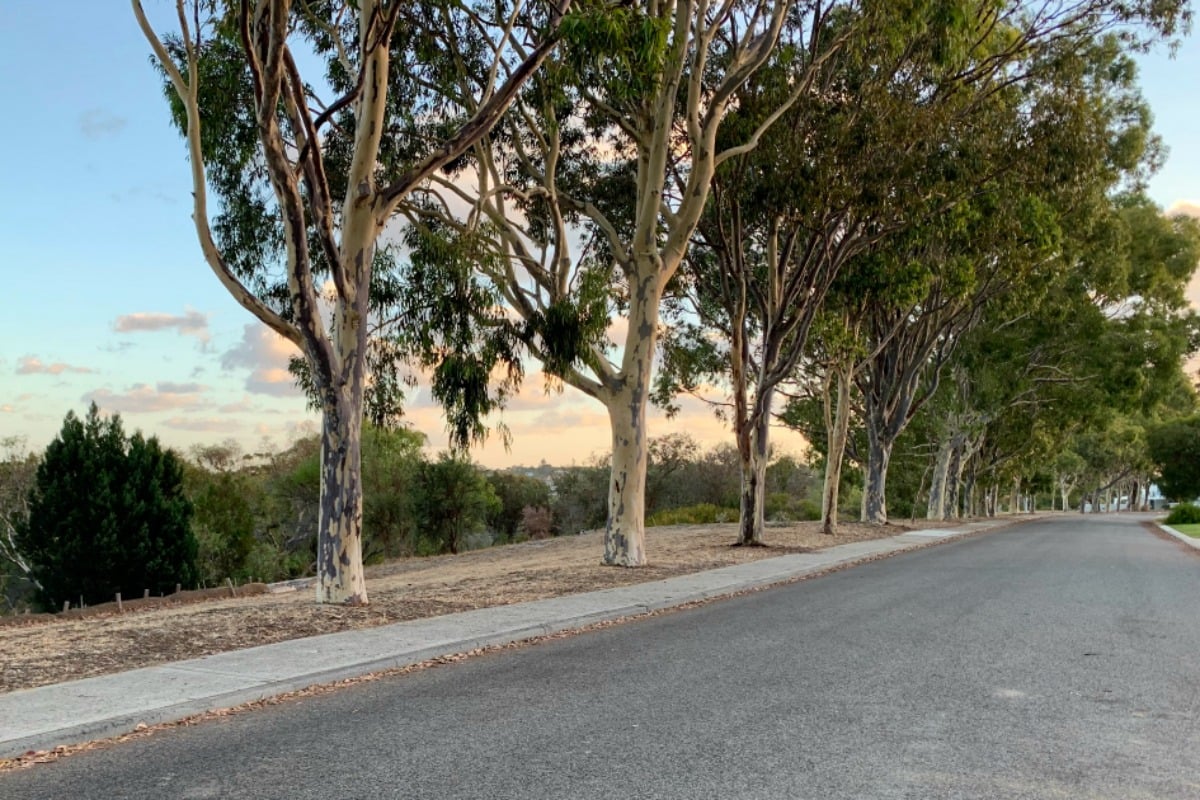
This week, a 40-year-old Victorian woman was killed.
The woman, who cannot be named for legal reasons, was stabbed inside her Seaford home on Tuesday afternoon, before running onto the footpath and crying for help.
The Age reports that three young children witnessed the stabbing, and a man, alleged to be her ex-partner, was arrested at the scene. He has since been charged with one count of murder.
You might have seen this story buried in the odd daily newspaper, or momentarily surfacing on homepages before it quickly disappeared. An image was published of a blood stained suburban footpath. “She was just yelling my name,” a neighbour told reporters. “Mick, call the cops.”
Watch: Women and violence, the hidden numbers. Post continues below.
And while a street in Victoria mourns the loss of a young woman taken decades too soon, the rest of the country rapidly turns the page. It is not enough to capture our attention, because what happened on Tuesday is the rule not the exception. Every week a woman will be killed. Most by a man who was once meant to love them.

Top Comments
“We can't let the deaths of women at the hands of violence....” MM, I think you mean MEN. These six women (and one trans-identified male) died at the hands of men.
If you can’t name the problem, you can’t effect change. This is Male Violence Against Women.
As a social worker, I can attest that this occurs in ALL socio-economic communities, not just particular ones as someone here alluded to. I've counselled many women experiencing violence at the hands of partners who are wealthy, highly-educated, respected in the AFL, men of faith, police officers, rural men as well as the stereotypical lower socio-economic types. Women suffer violence from all kinds of men everywhere.
One particular client just worked hard to summon the courage to attend court for the third time to request another AVO against her ex, who has continued to harass her regardless. Rather than be jailed this time, the judge allowed him to take up the new option these men have of accepting the AVO without admission of guilt. Therefore, this guy was allocated his 6th AVO, if you include the three AVO's granted to his previous partners. He just laughs openly in the courtroom about having to go off and 'pretend' to do anger management classes. The police do their job of arresting these guys and the judges let them out. My client wasn't even protected in the courtroom, her perpetrator was free to sit anywhere and when the courtroom was cleared for lunch, she was forced to stand outside, with him free to approach her as no security was provided.
Conservative governments are the biggest problem in tackling family violence because their traditional lack of priority for issues affecting women mean never enough jail cells are built or funded to house these grubs. The current waiting lists for counselling for women affected by family violence is 6 months! How is that adequate funding? Meanwhile ScoMo says all the words to create the illusion that the government cares about violence towards women but he is just a typical Conservative liar whose values come from faith-based beliefs where women are deemed inferior to men. Conservative men don't care about violence towards women because they still believe that men should have power over 'their' women. Look how they view abortion, like it is them who should get to decide what women do with their bodies. What hope do women have when Conservative governments continually force them backward?
To be fair both parties have proven they give zero sh##s about women. Lefts think men can buy us and be us. Rights think they can use us as baby machines. We need an entirely new party that actually sees women as human.
Blaming Conservative governments and Conservatives in general does not help anyone, nor does it add any value to the debate.
The idea that "Conservative men don't care about violence towards women" is a disgusting slur on conservative men, and it's not based in reality.
And the reason that some conservative people are against abortion has nothing to do with telling women what they can or can't do with their bodies, it's about protecting life, protecting the rights of innocent, unborn humans who are unable to fight for themselves.
I’m simply stating historical fact and you know it. Let’s quote your holy books shall we? Women in the background, men the leaders etc..
Conservative governments worldwide directly impact women’s rights going backwards or forwards. In the Middle East for example, women have been forced to veil many times whenever a Conservative leadership gets in. Thankfully, those same women have begun to take ownership of the veil to choose themselves whether to wear it or not.
It’s always Conservative men telling women what they can do with their bodies and it’s so backward. Why don’t they ban sex if they’re against abortion? Now we see how their rules only apply to women!
No, just equal representation of women and men in decision-making so that the women’s perspective is considered. Conservative men hate the idea though, they loved when women waited at home and brought them their slippers. Back-ward!